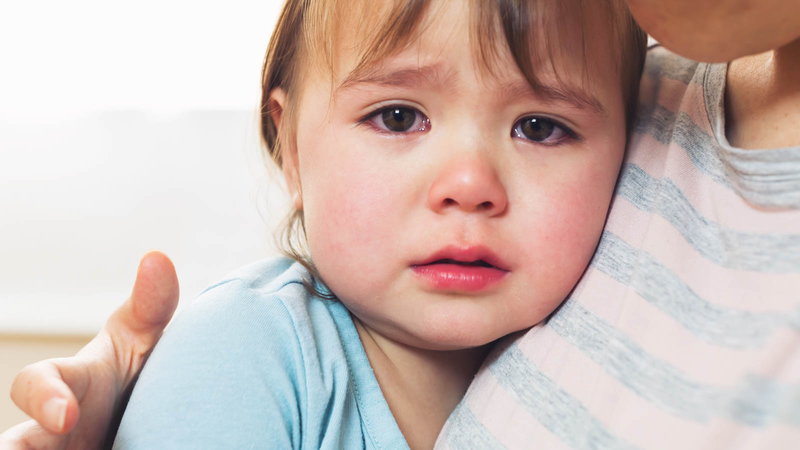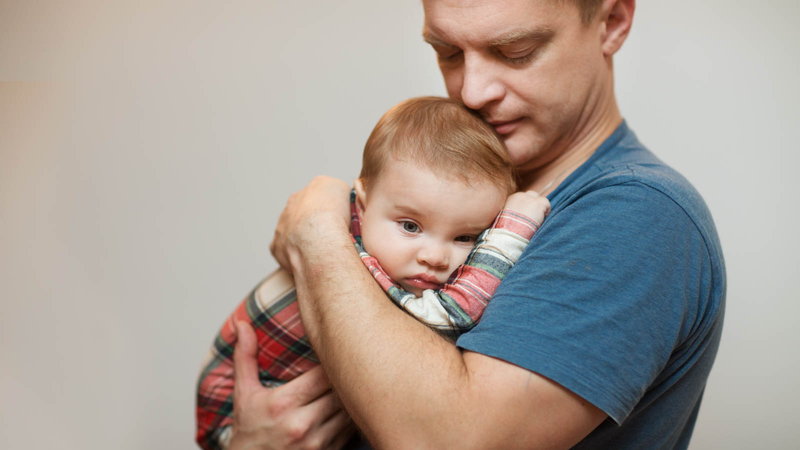
Weary mothers are often met with a barrage of seemingly helpful “sleep solutions,” from various family members and friends. Some suggested methods, while offering a possible system to attempt, may actually conflict with the mother’s natural parenting instincts. One such method, advocated by authors such as Ferber or Weissbluth, is known as the “Cry It Out Method.”
What is Cry-It-Out?
“Ferberization” is a sleep-training technique invented by Dr. Richard Ferber to solve infant sleep problems. Ferber advocates babies crying themselves to sleep with parents only soothing on a time schedule. This technique does not recommend holding your baby when they cry, or soothing them to sleep through touch. Put your baby in the crib, come back to pat and say soothing words at 5 minutes, 10 minutes, 15 minutes, etc. Increase the times every night. Hopefully your baby will stop crying and go to sleep. Dr. Marc Weissbluth advocates crying to sleep without parent soothing. In contrast to the Ferber method of crying it out, Weissbluth suggests open-ended time with no limit. You are, if you follow this advice, "leaving him alone to forget the expectation to be picked up."
Why Cry-It-Out Hinders Valuable Bonding and Breeds Unhealthy Sleep
Dr. William Sears, author of many books on gentle parenting approaches, including “The Baby Sleep Book,” explains at length the scientific reasoning behind why Cry-It-Out methods are biologically incorrect, going against what a mother is programmed to do, which is to tend and nurture her baby’s needs. It also leads to unhealthy sleep patterns for the child. “A baby who cries furiously before falling asleep will sleep in a state of hormonal havoc,” Dr. Sears explains in The Baby Sleep Book. “Crying releases stress hormones into baby’s circulation. Going to sleep should be a relaxing process, a time when stress hormones go down, not up. Frantic, unattended-to crying that escalates in intensity can keep a baby from going to sleep, and when eventually he does drop off to sleep, he may have trouble staying asleep. Then the crying starts all over again.”
What is Attachment?
“Attachment - A bond between an infant and a caregiver, usually its mother. Attachment is normally formed within the context of a family, providing the child with the necessary feelings of safety and nurturing at a time when the infant is growing and developing as a human being. This initial relationship between the infant and his caregiver serves as a model for all future relationships.”
Why Embracing Dependence Fosters Independence
Babies and children are born with the need for their parents. Author Peggy O'Mara, editor and owner of Mothering Magazine explains simply, “It is the nature of the child to be dependent, and it is the nature of dependence to be outgrown. Begrudging dependency because it is not independence is like begrudging winter because it is not yet spring. Dependency blossoms into independence in its own time.”

Only by meeting their needs of dependence can we give our children the foundation and confidence to build authentic independence. Infants do not yet understand the world. They learn trust through reliable nurturing from their parents. When care-givers are trustworthy, a child builds a solid sense of security. When you leave a baby to cry out their needs, even if their need is simply a need for you or a need for you to hold them, all you are really doing is demonstrating that their needs are to be ignored. According to Ask Dr. Sears, trust between an infant and his parent occurs when the parent responds to his cries and needs in a sensitive manner. Trust is built through the bonding process that occurs when parents bring home their new baby. When an infant knows that his parent will meet his needs, he begins to form the trust that will help their relationship thrive and mature as he grows.
More Resources for Attachment and Nurturing Sleep
The most important thing to remember is to trust your instincts when it comes to your baby. Here are further resources for gentle approaches to sleep solutions and attachment parenting:
“The No-Cry Sleep Solution: Gentle Ways to Help Your Baby Sleep Through the Night,” by Elizabeth Pantley

